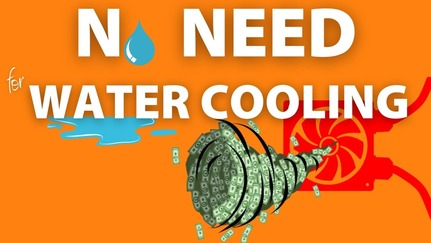 In the world of motor production, innovation is key to efficiency and sustainability. One significant advancement lies in the elimination of water cooling systems in patented motors. This shift brings a range of advantages, revolutionizing the way motors function while addressing several key drawbacks associated with traditional water-cooled systems. Water cooling, while effective in some regards, presents various challenges and limitations. Firstly, it requires substantial initial investment, involving the setup of complex systems including piping, flow monitoring, temperature controllers, and cabling. This not only adds to the overall cost but also demands continuous maintenance, leading to increased operational expenses. Moreover, the dependence on water quality is a significant concern. Water-cooled systems mandate chemically and physically clean water, posing challenges in various environmental conditions. Factors like temperature and climate directly impact the motor's performance, making it susceptible to external influences beyond its control. One critical drawback is the power consumption of the pump used in water cooling, which significantly affects the motor's overall power output. This power drain not only impacts efficiency but also translates into higher operational costs. Furthermore, the risk of system failure in water cooling can lead to severe damage to the motor. A malfunction in the cooling system poses a threat to the entire operational integrity, potentially causing irreparable harm and costly repairs. However, by eliminating water cooling, these challenges are effectively mitigated. The patented motors operate efficiently without the need for water-based cooling systems. This not only reduces initial investment costs but also slashes maintenance requirements, thereby enhancing cost-effectiveness and reliability. The elimination of water cooling systems also ensures consistent motor performance regardless of external climate conditions. This independence from environmental factors results in a more robust and reliable motor, delivering steady performance over time. Moreover, without the energy-consuming pumps and complex cooling infrastructure, these motors offer increased energy efficiency and higher power output. This translates to reduced operational costs and a smaller environmental footprint, aligning with the global push for sustainability. In conclusion, the move towards patented motors that eliminate water cooling systems marks a significant leap in motor technology. By addressing the drawbacks associated with traditional water-cooled systems, these motors offer enhanced efficiency, reliability, and sustainability, revolutionizing the landscape of motor production and operation.
0 Comments
|
Archives
December 2023
|
HoursM-F: 7:30am - 5:15pm
|
TelephonePbx +90 216 595 19 00
Fax +90 216 595 19 01 |
info@emfmotor.com
|

 RSS Feed
RSS Feed